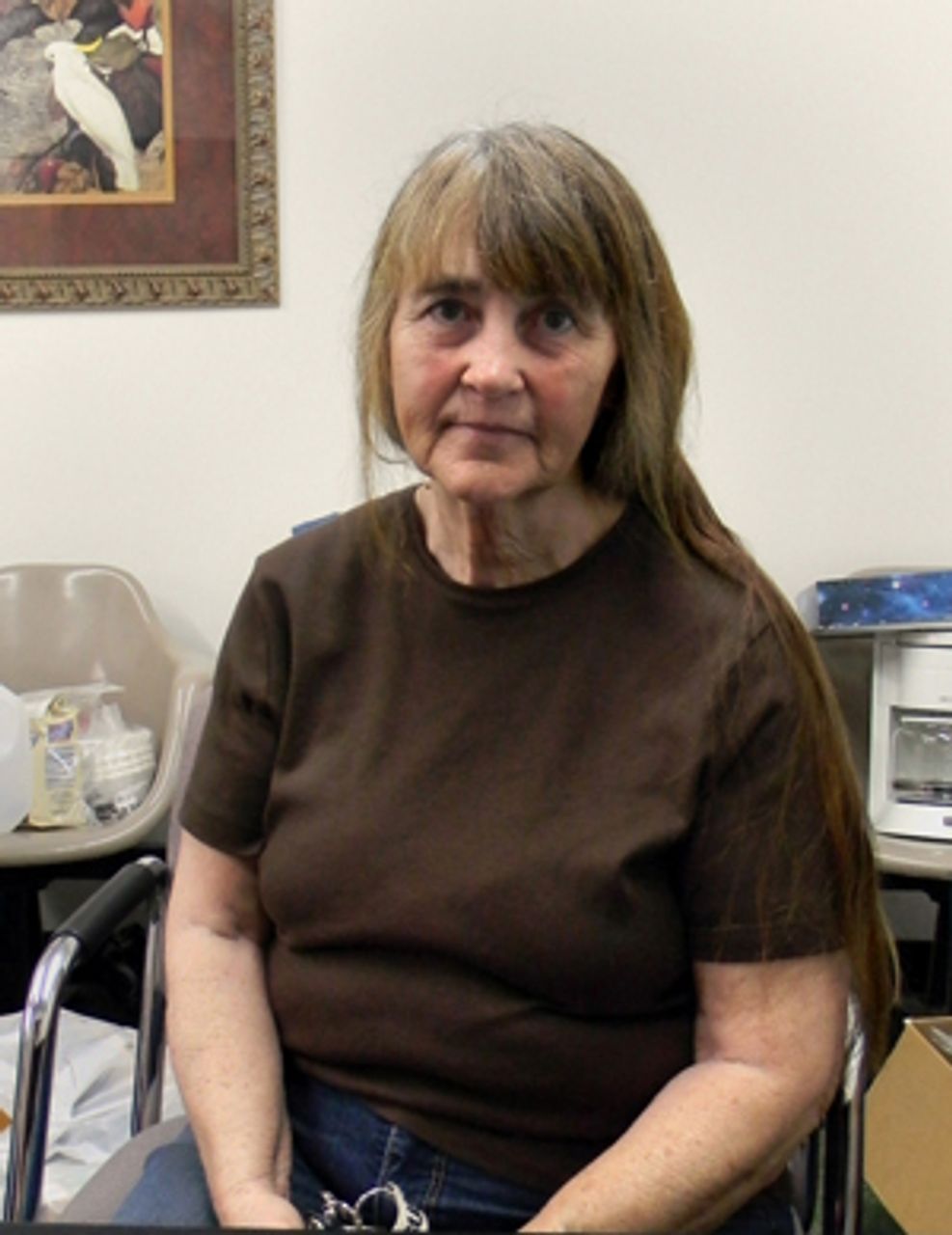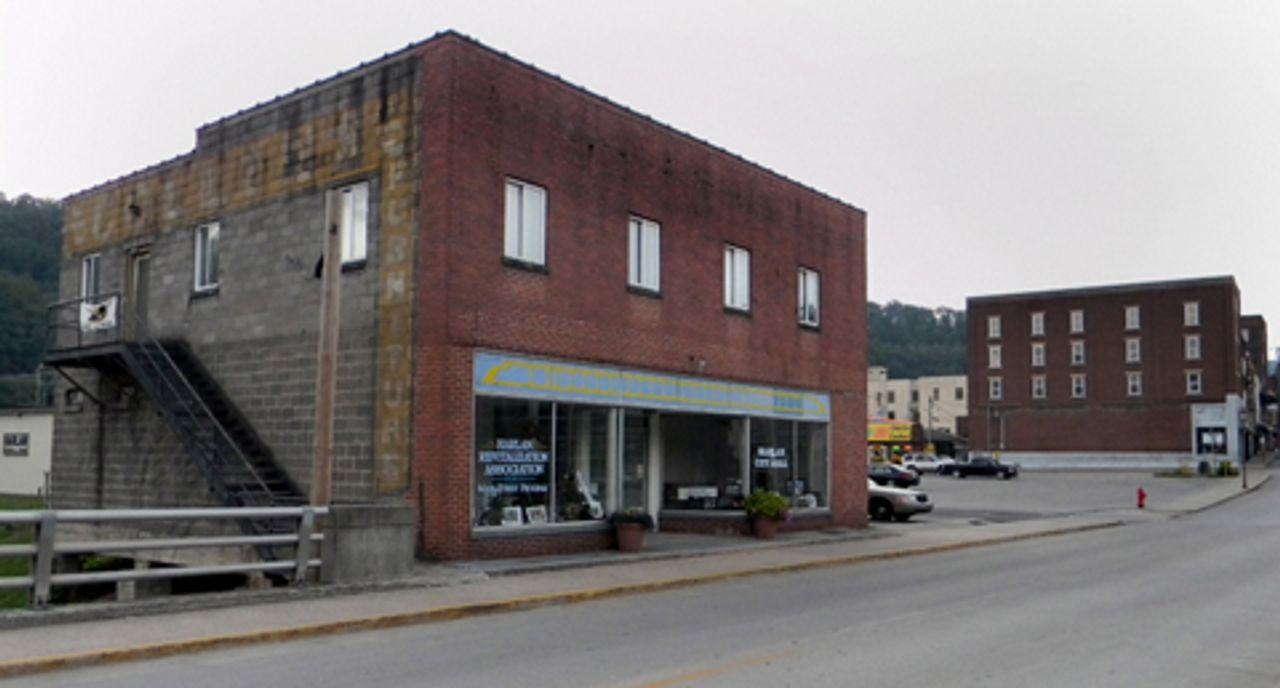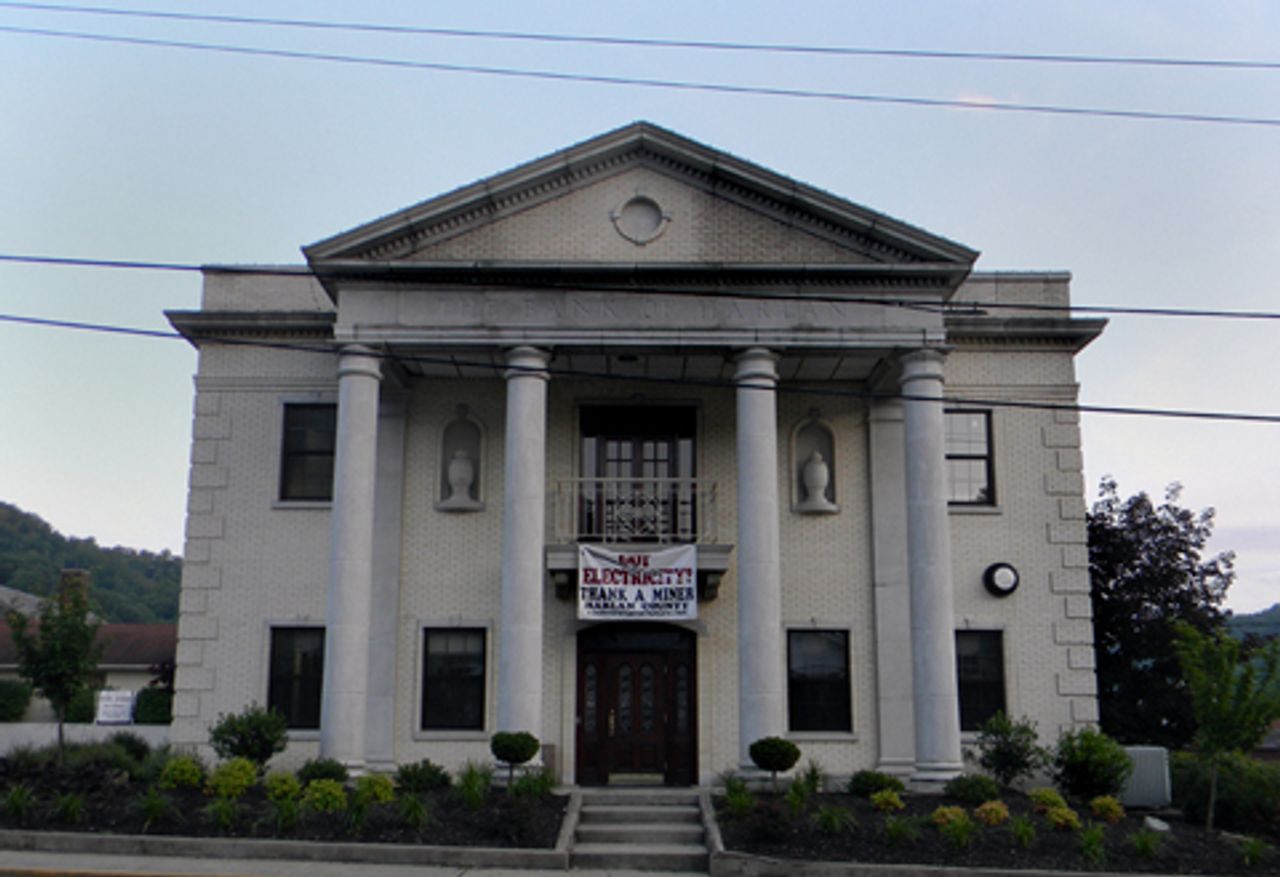Henrietta Inman, 64, spoke to World Socialist Web Site reporters at the Housing Authority of Harlan, a Housing and Urban Development-subsidized apartment building in downtown Harlan, Kentucky. The apartment building was among the largest buildings in town, and full of hundreds of elderly residents and families.
 Henrietta Inman
Henrietta Inman“Harlan used to be a thriving town,” Henrietta said. “There weren’t as many people, but there was work. All the work that is here for the young people today is low wage. Prices of everything are so high you can’t afford anything.”
Henrietta lives on a Social Security check of $600 a month. Her rent, $198 a month, is figured by the federal Housing and Urban Development (HUD) based on her income, and set at just under 30 percent of her monthly allotment—technically under the government’s “housing burdened” threshold for the proportion of income used to pay rent.
“It’s a roof over your head. That’s about all,” she said of the apartment complex. “It was the cheapest place I could find. But it’s not like renting a house or a trailer, where you can have flowers and stuff, it’s not like that. There are six floors and all of them are full. We’re not allowed to have any animals; there is no place to garden, and nothing to do in town now. We sit here and do puzzles,” she said, gesturing to a table full of puzzle pieces and boxes. Several other residents present during the interview nodded in agreement.
Henrietta’s husband was a coal miner working in a union mine in the 1970s and 1980s. Harlan County had been home to some of the most intense and violent labor struggles in the United States during the first half of the 20th Century, earning the county the nickname “Bloody Harlan.”
In the 1970s, workers seeking to unionize their mines were once again met with violence from the hired thugs of the coal operators. In 1973, miners at the Eastover Coal Company’s Brookside Mine and Prep Plant went on strike for union recognition. After a bitter 13-month struggle, during which time a young miner named Lawrence Jones was murdered by company thugs and workers were forced to arm themselves on the picket lines, the miners won a contract.
In the following decades, the betrayals of the United Mine Workers of America and the deregulation of the coal industry facilitated an assault on the living standards of Harlan workers, and the gains won by miners in earlier decades came under attack. Today there are no union mines in Harlan.
“Life was very hard in the 1970s,” she said. At the time of the Brookside strike, “I had four children then, and it was hard. One of my daughters was born in 1970. But I feel it’s a whole lot worse now. There’s no work—just the fast food restaurants. We need factories and industry in here to where the young people coming up will have somewhere to work.
“Our roads are in bad condition,” she added. “They patch them up here and there but we need a lot more done.
 City Hall and Revitalization offices in a building previously housing a furniture store, then a movie theater, in downtown Harlan
City Hall and Revitalization offices in a building previously housing a furniture store, then a movie theater, in downtown Harlan“Younger people have nothing to do. There are a lot of drug problems here because of that. I worry about the youth. We need something for 12-year-olds and 14-year-olds who are coming up here, because they’re not going to have anything either. It’s not just Harlan. It’s everywhere. Indiana used to be a booming place, too—my dad lived there. It’s gone downhill, too. It’s just really sad. Harlan used to be a beautiful place. I don’t know whether it’s the people they put in office, whatever they vote for in there, or what. I don’t think they represent us.”
 The Bank of Harlan, bearing a coal industry sign: “Got Electricity? Thank a Miner”
The Bank of Harlan, bearing a coal industry sign: “Got Electricity? Thank a Miner”Henrietta expressed deep concern over the ruthless energy costs imposed by Kentucky Utilities on the poor. Most of the coal bound for KU power plants is extracted from Harlan and surrounding counties. KU and other utility companies in the state are pursuing double-digit rate increases this year. “These high gas prices and oil prices and the electricity—it’s gotten outrageous,” she said. “Poor people have to have their electricity to cook and stuff like that, and the prices are supposed to go up again. It’s really unfair, because they barely make enough to live on, and these big bills are coming at them. Big electric bills, especially in the winter, are impossible.”
Another resident interjected, “What you think about when people’s light bills are $600 a month and they live on a small, low income? What do you think about that?”
Henrietta explained, “When they can’t pay their electric bills, they get cut off. One guy had three children. And he didn’t have money to pay it, and they cut his electric off in the winter.” The advocacy group Community Action, she told the WSWS, “is sent hundreds of thousands of dollars to help poor people, but I don’t know if that money is being used right or not. There are lot of people that, later on in the year when it’s chilly, can’t go over there and get their electric bill paid. Community Action is paid to do a good job on people’s homes to winterize them—but they get the cheapest windows that can be bought, and those windows are not going to hold the cold out. You can just feel the air coming through them. One little old thin piece of glass.
“Poor people have to have something. Everything is for the rich people, and the poor people are just hurting. They’re on their own.
“You know all of this falls back on the president,” Henrietta said. “Why has he not frozen these prices? Because he’s rich, and it doesn’t bother him. He represents the interests of the rich people. And the poor, he could care less about. It just all boils back to him. And now, all this oil is coming up in our water in the Gulf—and they don’t want to stop the oil because they’re going to make money off of that. What’s that doing to our fish and all the wildlife that’s there? They talk on the news about finding four or five turtles a day—and lord only knows how many are really dying. They won’t even say. Why don’t they stop that and protect those little creatures? It’s awful.
“But the very same things are allowed to go on there, and here in the mines, because of money,” she said, noting that the mine operators regularly cut corners on safety. In the early 1980s, she told the WSWS, “When my husband worked in the mines, he had an air quality monitor he wore that was supposed to detect unsafe levels of coal dust, how much of it they breathed a day. Well, he was to cut that off, just supposed to use it so many hours a day.
“He would have gotten fired if he left it on. So he was breathing all that dust, but that machine only showed that he was getting two hours a day. And you know, that’s not right. I think a human’s life is triply worth any amount of money you can get.” Today he suffers from black lung, Henrietta told the WSWS.
“If things get much worse, I don’t think the lord’s going to let there be many more generations. Things are terrible, and it’s getting worse. We need clean rivers, clean water, we need to clean that oil spill. If the people don’t pull together and do something, nothing’s going to be done about it.”
The social crisis in Appalachia: Part 1 | Part 2 | Part 3 | Part 4 | Part 5
Interviews and related material: 1 | 2 | 3 | 4 | 5
